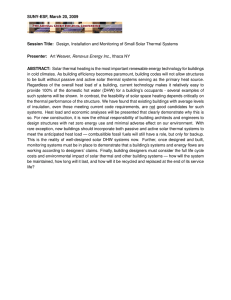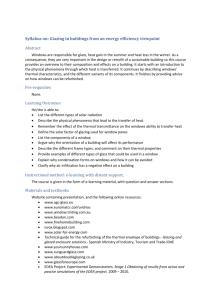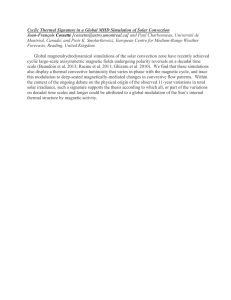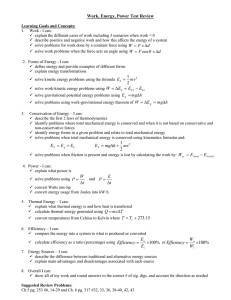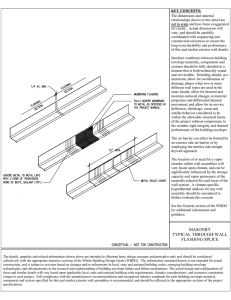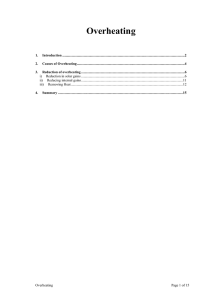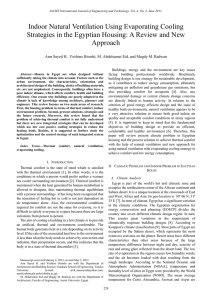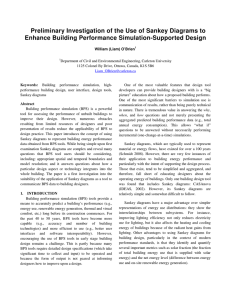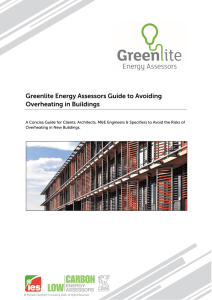Design Project milestones Excerpt from HW#2 (due February 27)
advertisement
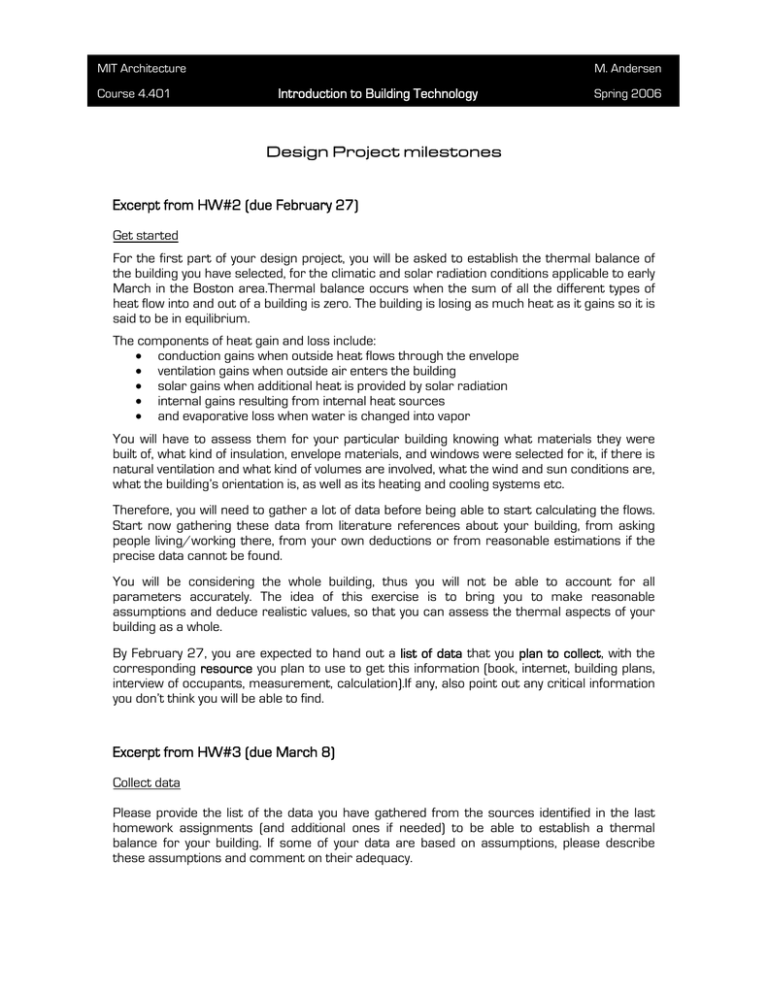
MIT Architecture Course 4.401 M. Andersen Introduction to Building Technology Spring 2006 Design Project milestones Excerpt from HW#2 (due February 27) Get started For the first part of your design project, you will be asked to establish the thermal balance of the building you have selected, for the climatic and solar radiation conditions applicable to early March in the Boston area.Thermal balance occurs when the sum of all the different types of heat flow into and out of a building is zero. The building is losing as much heat as it gains so it is said to be in equilibrium. The components of heat gain and loss include: • conduction gains when outside heat flows through the envelope • ventilation gains when outside air enters the building • solar gains when additional heat is provided by solar radiation • internal gains resulting from internal heat sources • and evaporative loss when water is changed into vapor You will have to assess them for your particular building knowing what materials they were built of, what kind of insulation, envelope materials, and windows were selected for it, if there is natural ventilation and what kind of volumes are involved, what the wind and sun conditions are, what the building’s orientation is, as well as its heating and cooling systems etc. Therefore, you will need to gather a lot of data before being able to start calculating the flows. Start now gathering these data from literature references about your building, from asking people living/working there, from your own deductions or from reasonable estimations if the precise data cannot be found. You will be considering the whole building, thus you will not be able to account for all parameters accurately. The idea of this exercise is to bring you to make reasonable assumptions and deduce realistic values, so that you can assess the thermal aspects of your building as a whole. By February 27, you are expected to hand out a list of data that you plan to collect, with the corresponding resource you plan to use to get this information (book, internet, building plans, interview of occupants, measurement, calculation).If any, also point out any critical information you don’t think you will be able to find. Excerpt from HW#3 (due March 8) Collect data Please provide the list of the data you have gathered from the sources identified in the last homework assignments (and additional ones if needed) to be able to establish a thermal balance for your building. If some of your data are based on assumptions, please describe these assumptions and comment on their adequacy. The level of precision your will reach for your thermal balance will depend on what information you have access to and how you use it. Please comment on the reliability of your data and on their expected accuracy and applicability. Don’t worry if you cannot get precise numbers. Once more, what counts is only to have the right order of magnitude and to base your conclusions on correct suppositions and method. The data that you collect should cover: reasonable indoor and outdoor temperatures and humidity for early March; reasonable value for solar irradiation on the façades; rough (average) number of people living in the building, rough estimation of the number and type of appliances and lighting elements; materials that make up the building’s envelope and the windows; orientation of the different façades; rough estimation of obstructions around the building created by the surroundings; volumes involved and recommended (possibly adjusted) air renewal rates.

